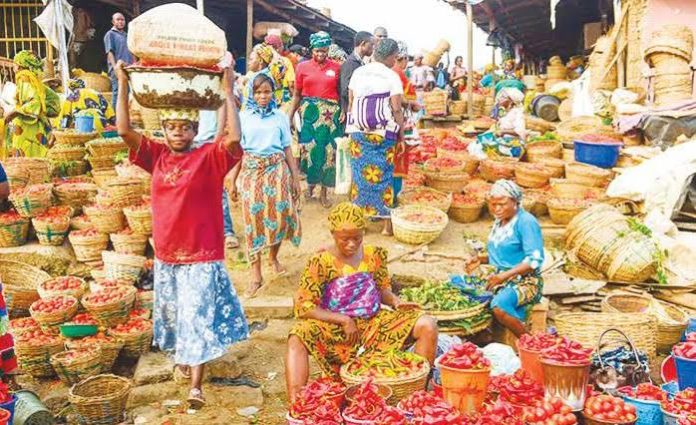News Investigators/ Some agriculture experts have expressed optimism of a drop in food inflation in 2025 with the effective implementation of the Federal Government food security policies.
They expressed the optimism in separate
interviews with the News Agency of Nigeria (NAN) on Friday in Lagos.
They were reacting to the November Price Index and Inflation Report released recently by the National Bureau of Statistics (NBS).
The report showed that the headline inflation rate year-on-year stood at 34.60 per cent as against the 33.88 per cent recorded in October 2024.
The NBS said that the food index rose to 39.93 per cent in November in contrast with 39.16 per cent recorded in October.
It said that food inflation year-on-year basis was highest in Sokoto at 51.30 per cent and lowest in Kwara at 31.39 per cent.
Mr Akin Alabi, agriculture expert and co-founder Corporate Farmers International, highlighted factors responsible for the continuous food inflation rate, while expressing optimism of lower inflation rates in 2025 with adequate implementation of government’s policies.
“It is unfortunate that the price of foodstuff is still going to go up even till the first quarter of 2025. A major factor that drove the food inflation in 2024 is the high cost of fuel.
“We also had other factors such as insecurity and climate change effects driving the food inflation witnessed in the country this year.
“All the factors mentioned above jerked up the price of food items and the cost of food production in 2024.
“However, the good news is that as regards the 2025 budget, so much attention will be given to achieving food security in the country.
“If the present administration keeps to its word of achieving food security, I have no doubt in mind that will go beyond this expectation.
“In 2025, we should begin to see the effect of the policies that has been made by the Federal Government, majorly from the Ministry of agriculture,” Alabi said.
He also noted that the interventions should start from “mechanisation, seed inputs and the like and plans around dry and wet season farming, that to ensure all-year-round crop cultivation.
“The Presidency has announced that food is non-negotiable and I want to believe Nigerians are going to hold him accountable for those words,” he added.
On his part, Mr Omotunde Banjoko, agriculture analyst, blamed the rising inflation on the closure of some farms and agro-allied industries in the country due to high operation cost.
“A major cause of this food inflation we have been experiencing month-after-month is because a lot of our farms and agro-allied industries are shutting down due to the rising cost of operation.
“Most agro-allied factories cannot meet up their obligations. Those able to meet up the obligations are experiencing financial issues and are unable to keep up with the volume and scale of what they would have produced.
“This means we have fewer produce going to the market in comparison to the rising demand. The cost of production in the sector is higher, while the purchasing power is low.
“In the farms, we used to have labourers charge between N2,000 and N3,000 for labour but now they charge between N4,000 and N6,000 for labour per day.
“All these factors are coming together to drive the food inflation we are witnessing in the country,” Banjoko said.
He, however, reiterated the need for government to address all the loopholes driving the inflation rates and sabotaging the attainment of food security in the country.
“We still see a lot of diversions in the agric. sector and these are the potholes that the government should be filling, now also that we are preparing to go into a new year.
“All these holes through which funds are being diverted from the real production, should be blocked if they are truly serious about reducing food inflation.
“Basically, the general cost of operation is a major factor driving food inflation in the country. We have a lot of farmers that are in debt.
“As we have farms shutting down, the cost of inflation will be going up,” he said.
NAN


